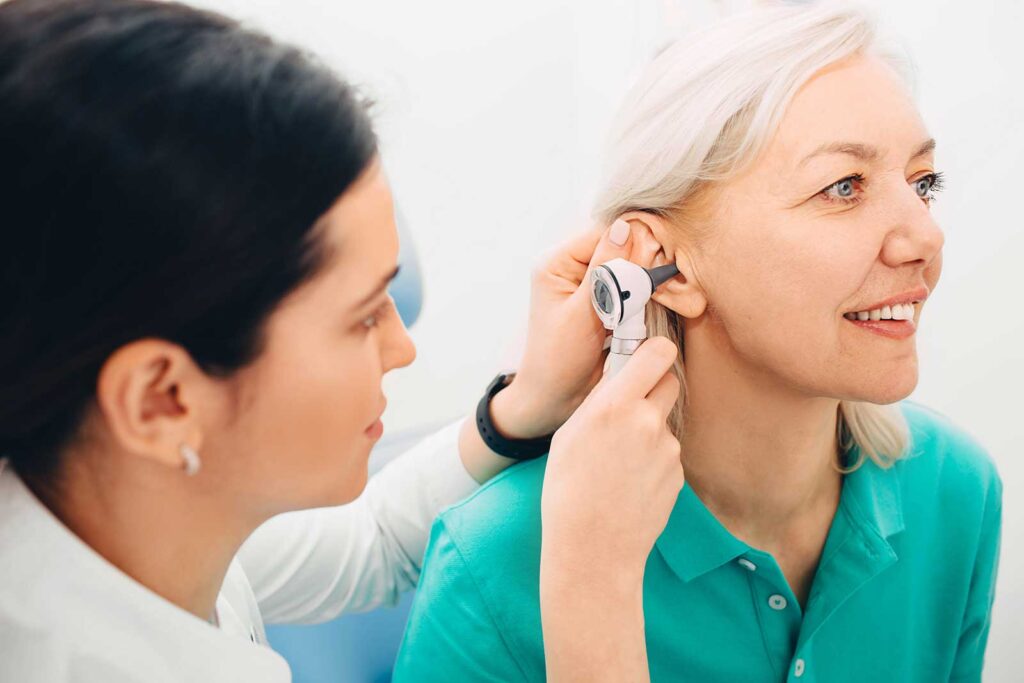How Hearing Works
Three different sections make up the ear: the outer ear, the middle ear and the inner ear. These parts of the ear work together so you can hear and process sounds.
Sound follows this pathway from the outer ear to the brain: The outer ear, or pinna, picks up the sound waves, which travel through the outer ear canal. The eardrum begins to vibrate after sound waves hit it. That vibration from the eardrum continues to the three tiny middle ear bones. The moving bones produce waves in a fluid-filled organ called the cochlea. The moving fluid stimulates the nerve cells or hair cells in the cochlea. The sound information received by the nerves is sent to your brain via the auditory nerve. This complete process allows you to hear.
Any problem along the pathway can cause hearing loss. A conductive hearing loss results from a problem in the outer or middle ear. A sensorineural loss results from damage to the inner ear. A central loss results from damage to the auditory nerve or brain. A combination of a conductive and sensorineural loss is called a mixed loss.
What Causes Hearing Loss?
Many factors can affect your hearing. The aging process can weaken the nerves of the ear, exposure to loud sounds through work or recreation can destroy the nerve cells, or a person may be born with parts of the ear that didn’t form correctly or don’t work well. Different types of illness, including serious infections such as meningitis, can also cause lasting damage on the hearing system, as can injuries to the head.
Hearing loss can diminish many aspects of your life. It can pose many day-to-day challenges by making communicating with family, friends and co-workers very difficult. Hearing loss develops gradually and subtly. Your family and friends may notice your hearing loss before you. At that time, it’s time for a qualified Audiologist to test your hearing. Identifying a hearing loss early promises a more positive outcome. The younger and more flexible your brain, the better you can adjust to the new sounds of hearing aids.
If you have hearing loss, you need to monitor your hearing regularly through an annual check-up. Your Audiologist can adjust your hearing aids to deal with any changes in your hearing. You will need to replace your aids periodically depending on the following factors: if your hearing gets worse, if your ear shape changes, if your hearing aids break down under standard wear and tear, and if new technology can better help you.


